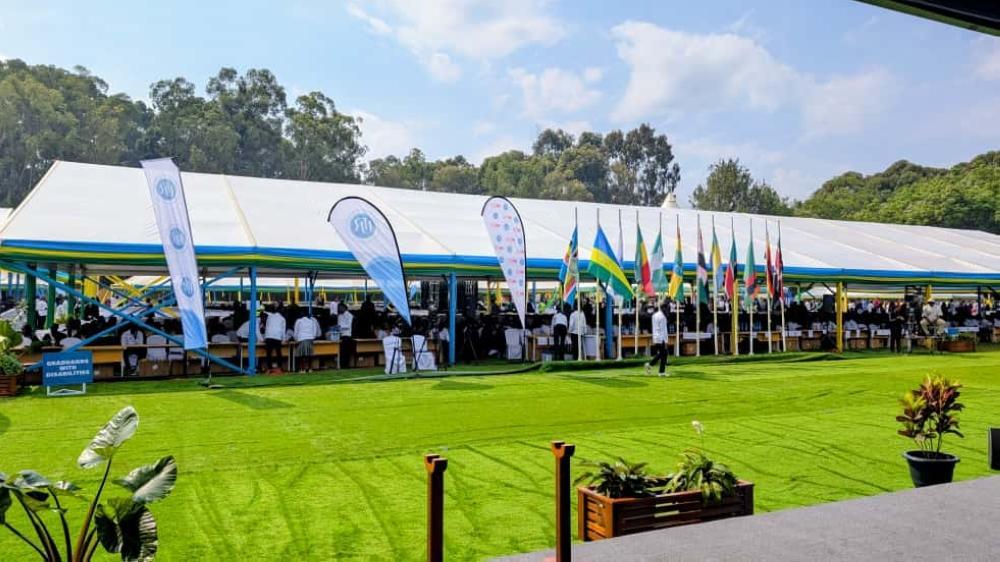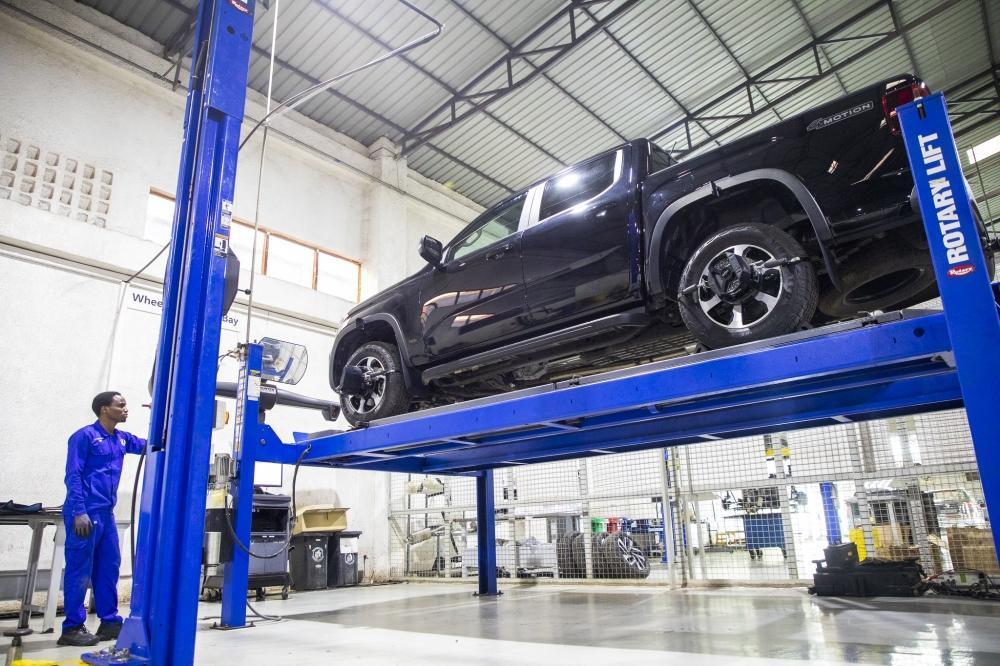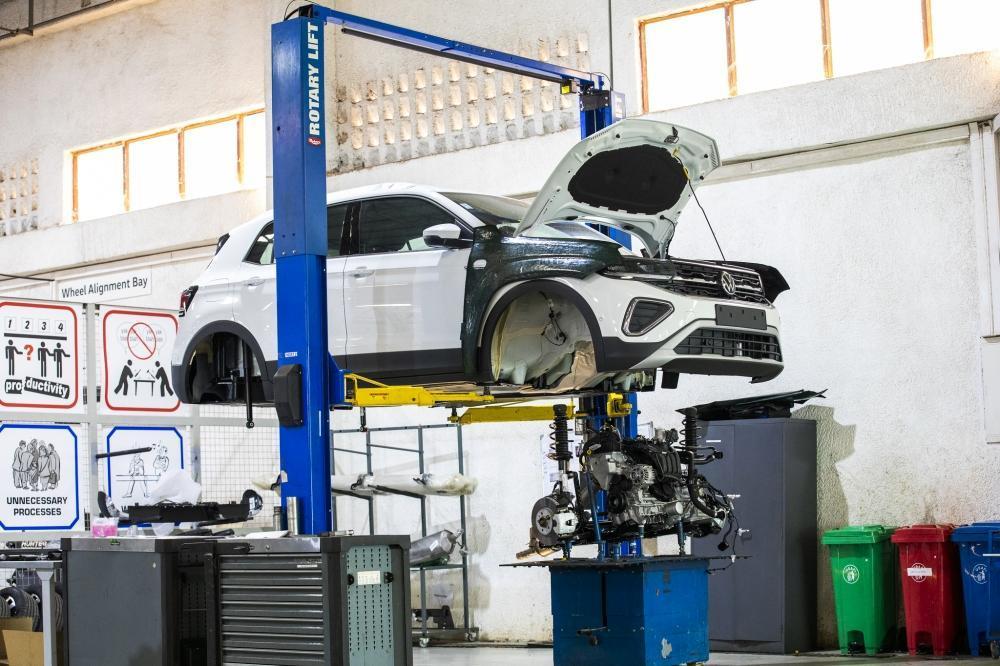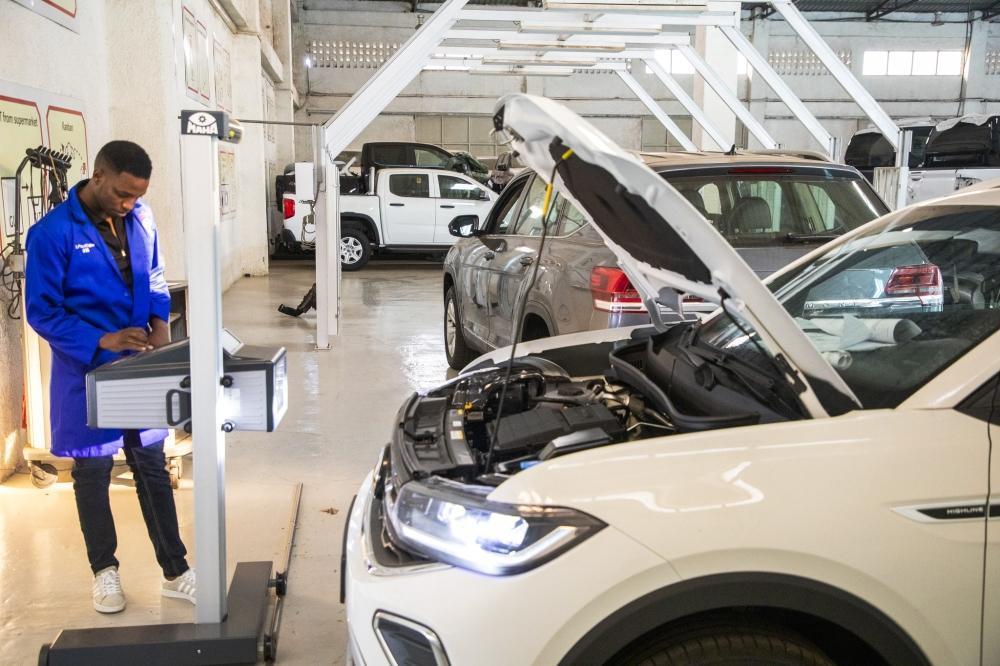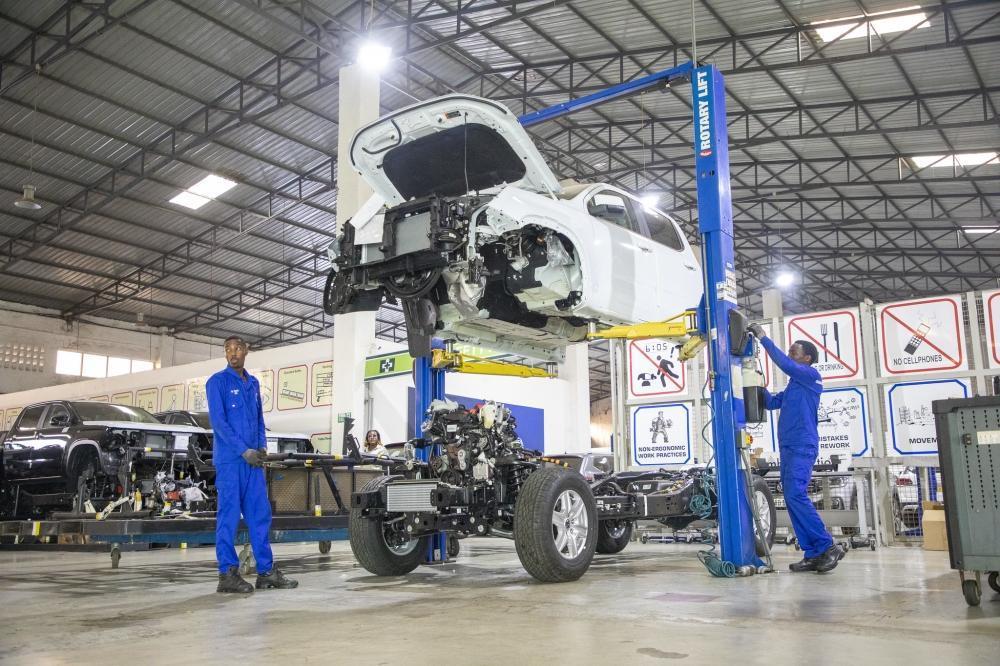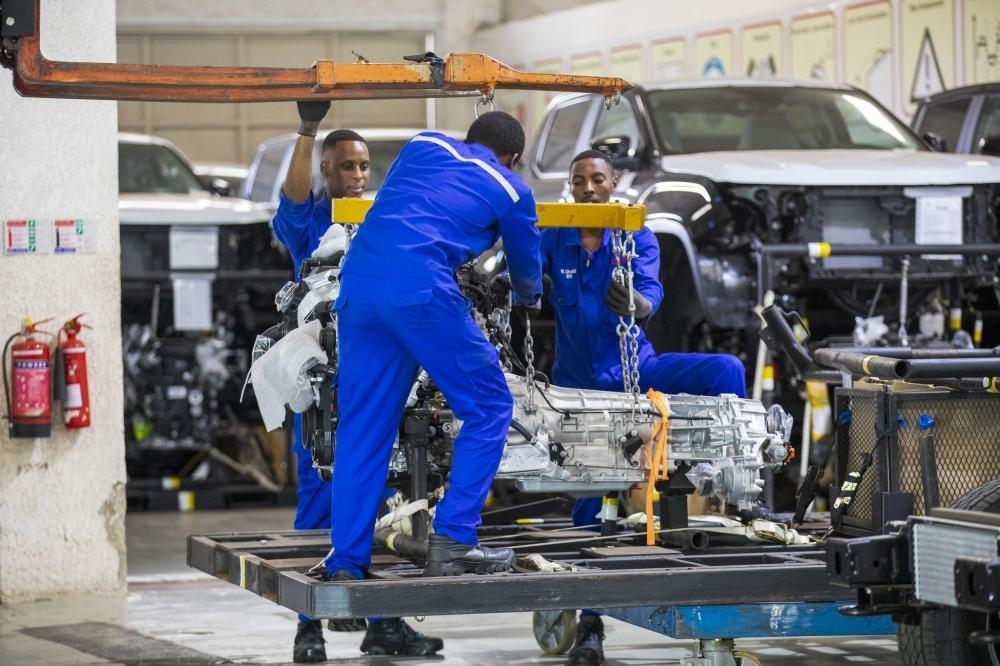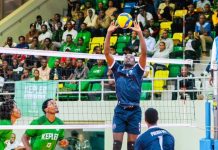Africa-Press – Rwanda. A total of 9,526 students are graduating today, Friday, October 17, during University of Rwanda’s 11th Graduation Ceremony
The students are from the university’s seven colleges, offering different courses.
Among them, 3,978 are females, representing 42 per cent of the total, while 5,548 are males.
The academic awards featured at the ceremony include 52 diplomas, 238 advanced diplomas, 8,462 bachelor’s degrees, 697 master’s degrees, 27 postgraduate certificates, 14 subspecialty certificates, one ordinary degree, and 35 PhDs.
The ceremony was graced by Prime Minister Justin Nsengiyumva, who joined the Minister of Education, senior government officials, university leaders, and parents.
Didas Kayihura, UR’s Vice Chancellor, urged graduates to remain adaptable and ethical in an era defined by rapid technological change.
He reminded them that “continuous learning is a tool for staying relevant and at the forefront of knowledge and skills.”
Kayihura emphasised that the world of work is evolving faster than ever before, driven by artificial intelligence and digital innovation.
“Employment is as dynamic as the concept of change, curiosity and adaptability would be the greatest assets for the next generation of professionals. Use technology responsibly, noting that while AI offers great potential, it must be guided by integrity and concern for human well-being,” he said.
UR was formed in 2013 following the merger of the former National University of Rwanda and six other public institutions of higher learning.
It has more than 30,000 students in six colleges across the country. It offers up to 87 undergraduate programmes and 138 postgraduate programmes.
In the heart of Kigali’s Special Economic Zone, Volkswagen by CFAO Mobility is reshaping Rwanda’s automotive landscape by assembling vehicles locally, empowering the youth, and steering the country towards a greener future.
Since launching operations in Rwanda in 2018, Volkswagen has trained local technicians to master the complex art of car assembly, transforming shipped parts into high-quality, road-ready vehicles.
A mechanic works at Volkswagen facility at Kigali Special Economic Zone. Photo by Emmanuel Dushimimana
The process, which involves meticulous stages from body assembly to quality control, now produces several models, including the Polo, Passat, Teramont, and Amarok, tailored for Rwandan roads and needs. Each car comes with a full warranty and comfort features that match global standards.
Beyond production, this initiative has created close to a hundred of jobs, equipped young Rwandans with world-class automotive skills, and set ambitious goals—like phasing out diesel engines—to align with Rwanda’s environmental commitments.
Miette also added that CFAO is preparing for the shift to electric mobility. Photo by Emmanuel Dushimimana
Volkswagen’s journey in Rwanda is more than just assembling cars; it’s about building a sustainable industry from the ground up.
How are cars assembled?
According to Eddie Musambi, the line and assembly manager at Volkswagen, the local assembly of Volkswagen vehicles begins with the arrival and inspection of all components packed on skids. Once verified, parts are moved to the assembly line.
Since launching operations in Rwanda in 2018, Volkswagen has trained local technicians to master the complex art of car assembly.
He explained that one car is usually assembled by two people, a technician and an operator, where the technicians check off tasks as they go, ensuring bolts are tightened properly and Volkswagen standards are met.
“Each car is assembled by two technicians, an operator, and a verifier. They follow a detailed SOS procedure from Volkswagen that guides every step.”
Workers on duty in the assembling facility in Kigali.
After assembly, the vehicle undergoes quality control, which includes interior and exterior checks, headlight and wheel alignment, and a road test.
“We do a rattle test, a performance check, and another checklist. Only if everything passes, the vehicle gets final approval.”
Each car is assembled by two technicians, an operator, and a verifier. They follow a detailed SOS procedure from Volkswagen that guides every step.
Musambi also added that smaller models like the T-Cross take about a day to complete, while larger ones like the Amarok need up to two days, noting that two teams of trained technicians are enough to handle all the procedures.
“With smaller models, we can assemble around 44 units monthly; for bigger ones, about 22, and most of the time two teams of trained technicians handle the work; however, training takes two weeks, plus one week of auditing,” he stated.
For after-sales, only genuine Volkswagen parts are used.
“We can ensure the best performance, safety, and durability, and all vehicles come with a 3-year or 120,000 km warranty, and parts have a 2-year guarantee.”
Managing Director of CFAO Mobility Rwanda, Emmanuel Miette, underlined that local assembly isn’t just about building cars, it’s about building skills and creating long-term value.
“We’re developing technical knowledge that supports local jobs, better after-sales service, and future growth, and if this model works, we want to expand to other brands, but that needs more training and strong local partnerships,” he said.
Miette also added that CFAO is preparing for the shift to electric mobility.
“We’ve started planning and preparing for EV assembly, as we would like to enlarge or assembly capacities in electric vehicle as well, with CFAO’ s large portfolio of brands, we believe moving to electric vehicles will properly position Rwanda into a greener, more advanced automotive future,” he added.
One of the Volkswagen assembly interns, Patience Giramata, shared how the experience has been eye-opening and how she gained hands-on skills and learned the full assembly process from start to finish.
“We learned about engines in school, but here, I have seen how they actually work in real life. They blend theory with hands-on practices, which allows me to see how every part connects. Now I know the exact order of assembly, what comes first, and how everything fits together,” she said.
Giramata also added that working on the assembly line has taught her the full process, from sorting components to building the car step-by-step, believing this experience could lead to even greater innovations
“If we can assemble, we can also build our own cars someday. It’s possible once you understand the process, as one of the few young women in the workshop, I would like to encourage other girls out there that being a mechanic isn’t just for boys, girls can do this too,” she added.
Jean-Luc Mugabo, Sales Manager of CFAO Rwanda, highlighted how the project has expanded since 2018 from a few models to seven today, adding that assembling vehicles locally helps make them more affordable and improve service.
“That growth shows how we’re responding to customer needs, and it’s creating real opportunities for local youth, especially those from technical schools. Technicians now use advanced VW diagnostic tools, cutting repair time and boosting efficiency. We’re also preparing for electric vehicles and new models as Rwanda’s fuel standards improve,” he noted.
Mugabo also emphasised that with continued support from Rwandans, they can grow even more and bring in more vehicle options.
For More News And Analysis About Rwanda Follow Africa-Press

